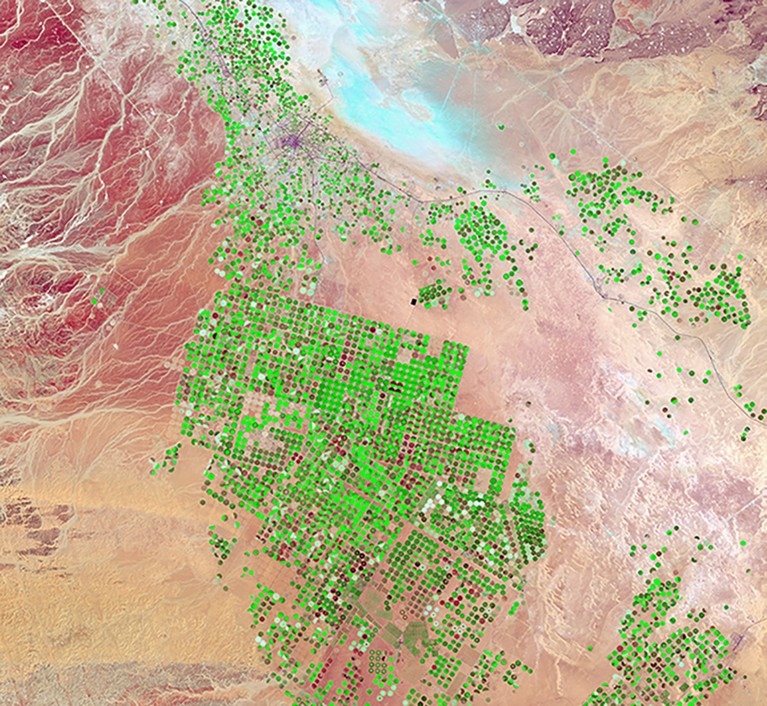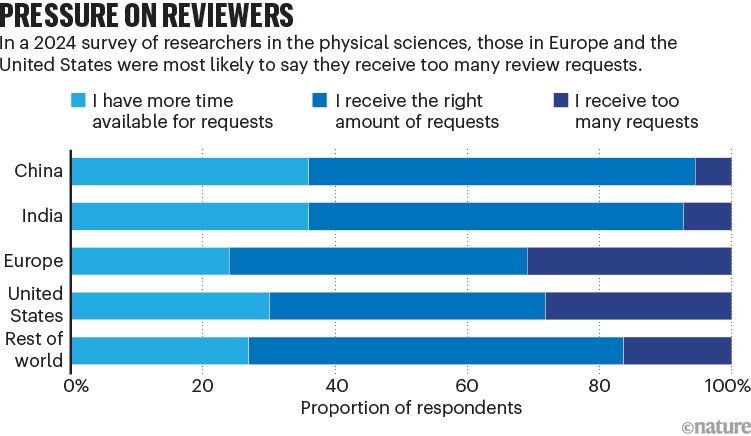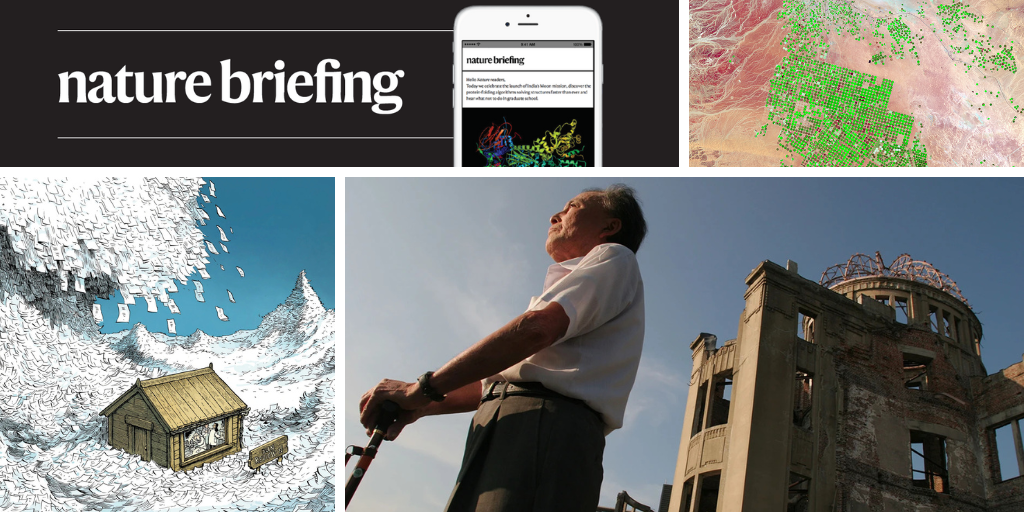You have full access to this article via your institution.
Hello Nature readers, would you like to get this Briefing in your inbox free every day? Sign up here.

The AI system AlphaEarth Foundations integrates satellite images, such as this one of irrigated cropland, with other types of map to offer a data-rich picture of Earth.Credit: USGS
Tech giant Google has released an artificial intelligence (AI) model that acts as a ‘virtual satellite’ to weave together trillions of disparate observations — satellite images, radar and more — to track changes in land and shallow waters across Earth. The sheer scale of the effort is impressive, researchers say. But many are calling on Google to release more information on how they tested the model, and they warn that it will be up to individual scientists to verify maps they obtain using the model.
Reference: arXiv preprint (not peer reviewed)
A potato–tomato tryst about nine million years ago might have led to the characteristic underground tuber of the modern potato (Solanum sp.). Researchers analysed the genomes of 450 cultivated potatoes and 56 of their wild relatives and found a mix of Etuberosum — a plant group similar to potatoes — and tomato DNA sequences. This suggests that the two plants hybridized at some point. The resulting hybrids combined two genes necessary for tuber growth: the SP6A gene from tomatoes, and the IT1 gene from Etuberosum.
Nearly one-third of all retracted papers at PLoS ONE can be traced back to just 45 researchers who served as editors at the journal, five of whom Nature’s news team have been able to identify. These editors handled only 1.3% of all articles published by the journal from 2006 to 2023, but the papers they accepted accounted for more than 30% of the 702 retractions that PLoS ONE issued by early 2024. These retractions can’t be blamed on a few bad authors, says metascientist and study co-author Reese Richardson. “There is complicity from within the journal-appointed editors that allows for this to happen.”
Reference: Proceedings of the National Academy of Sciences paper
Features & opinion
Peer review — often described as the bedrock of scientific endeavour — is in crisis. The sheer number of manuscripts reaching publishers puts immense strain on editors, who say they’re increasingly struggling to find reviewers. Some publishers are experimenting with innovations that streamline the process but retain its core tenets, such as providing referees with clear questions to address, or taking steps to make it easier to find reviewers, such as offering financial incentives. Others argue that an overhaul is in order, and the idea of scrapping the process for some articles is gaining traction.

Source: State of Peer Review 2024/IOP Publishing (https://go.nature.com/4JYSDTS)
US Secretary of Health Robert F. Kennedy Jr says that the United States is “the sickest nation in the world”. But how unhealthy is the United States really? To find out, Nature gave the country a health check to see how it measures up to similar nations. Nature Briefing’s own Flora Graham delves into the data on life expectancy, early death and health-care spending in the United States, and whether the solutions proposed by Kennedy and others can really make America healthy again.
Today I’m learning about the space race, but not the one you might think. Instead of the Cold War, I’ve opted to clue up on the Cola War — the race between soft-drink giants Coca-Cola and PepsiCo to get the first carbonated beverage into space.
Spoiler alert: it was a tie. A sample of both drinks was launched into orbit on 29 July 1985 on the Challenger shuttle in specially designed cans and each was tested by a separate group of astronauts, to avoid them being asked which they preferred.
While I quench my sudden thirst, please let me know if you have any feedback on this newsletter. Your emails are welcome at [email protected].
Thanks for reading,
Jacob Smith, associate editor, Nature Briefing
• Nature Briefing: Careers — insights, advice and award-winning journalism to help you optimize your working life
• Nature Briefing: Microbiology — the most abundant living entities on our planet — microorganisms — and the role they play in health, the environment and food systems
• Nature Briefing: Anthropocene — climate change, biodiversity, sustainability and geoengineering
• Nature Briefing: AI & Robotics — 100% written by humans, of course
• Nature Briefing: Cancer — a weekly newsletter written with cancer researchers in mind
• Nature Briefing: Translational Research — covers biotechnology, drug discovery and pharma


